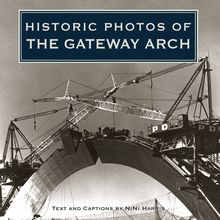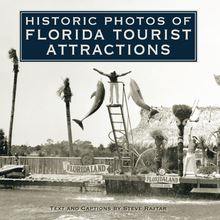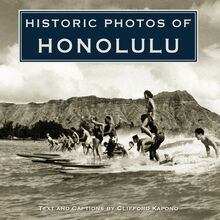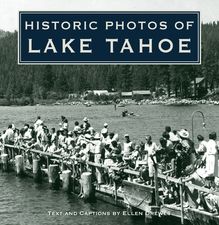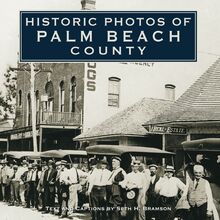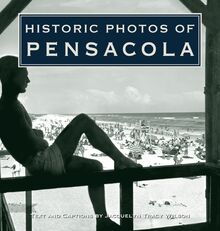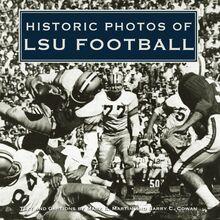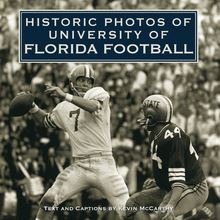-
 Univers
Univers
-
 Ebooks
Ebooks
-
 Livres audio
Livres audio
-
 Presse
Presse
-
 Podcasts
Podcasts
-
 BD
BD
-
 Documents
Documents
-
- Cours
- Révisions
- Ressources pédagogiques
- Sciences de l’éducation
- Manuels scolaires
- Langues
- Travaux de classe
- Annales de BEP
- Etudes supérieures
- Maternelle et primaire
- Fiches de lecture
- Orientation scolaire
- Méthodologie
- Corrigés de devoir
- Annales d’examens et concours
- Annales du bac
- Annales du brevet
- Rapports de stage
La lecture à portée de main
Vous pourrez modifier la taille du texte de cet ouvrage
Découvre YouScribe en t'inscrivant gratuitement
Je m'inscrisDécouvre YouScribe en t'inscrivant gratuitement
Je m'inscrisEn savoir plus
Vous pourrez modifier la taille du texte de cet ouvrage
En savoir plus

Description
The history of the Main Line began in 1832 with the building of the Philadelphia and Columbia Railway, which opened the area to Philadelphia and points west for the movement of people and freight. Along that line would rise the communities of Overbrook, Merion, Narberth, Wynnewood, Ardmore, Haverford, Bryn Mawr, Rosemont, Villanova, Radnor, St. Davids, Wayne, Strafford, Devon, Berwyn, Daylesford, and Paoli.
The images collected in Historic Photos of the Main Line combine to form a remarkable portrait of this unique array of communities. Included among many other vignettes and numerous subjects are the Devon Horse Show, visits by presidents Taft, Wilson, and Coolidge, the Autocar Company of Ardmore, the 1900 Class of Wynnewood Public School, I. A. Cleaver’s General Store, Villanova University, the General Wayne Inn, Narberth’s oldest house, and of course, the railroads.
In stunning black-and-white photography, this handsome book details the historical growth of the Main Line from its early days up to recent times. Spanning two centuries and nearly 200 images, the book follows the growth of this history-rich region, offering a compelling look into the past for any longtime resident of the area and every history buff of the Main Line.
Sujets
Informations
| Publié par | Turner Publishing Company |
| Date de parution | 01 avril 2008 |
| Nombre de lectures | 0 |
| EAN13 | 9781618584373 |
| Langue | English |
| Poids de l'ouvrage | 9 Mo |
Informations légales : prix de location à la page 0,1900€. Cette information est donnée uniquement à titre indicatif conformément à la législation en vigueur.
Extrait
HISTORIC PHOTOS OF
THE MAIN LINE
T EXT AND C APTIONS BY L AURA E. B EARDSLEY
Identified by amateur photographer Lucy Simpson as the Grove, this tranquil area of trees stands adjacent Devon Station in the early 1920s.
HISTORIC PHOTOS OF
THE MAIN LINE
Turner Publishing Company
200 4th Avenue North Suite 950
Nashville, Tennessee 37219
(615) 255-2665
www.turnerpublishing.com
Historic Photos of the Main Line
Copyright 2008 Turner Publishing Company
All rights reserved.
This book or any part thereof may not be reproduced or transmitted in any form or by any means, electronic or mechanical, including photocopying, recording, or by any information storage and retrieval system, without permission in writing from the publisher.
Library of Congress Control Number: 2007937033
ISBN-13: 978-1-59652-420-0
Printed in China
08 09 10 11 12 13 14 15-0 9 8 7 6 5 4 3 2 1
C ONTENTS
A CKNOWLEDGMENTS
P REFACE
F ROM THE O LD C OMES THE N EW (1832-1899)
A P LACE TO C ALL H OME (1900-1919)
H IGHS AND L OWS (1920-1949)
T HE F UTURE I S N OW (1950-1970 S )
N OTES ON THE P HOTOGRAPHS
A twelve-foot-long tennis racquet greets customers at the James Cox Sportshop on Lancaster Avenue in Bryn Mawr in 1979.
A CKNOWLEDGMENTS
This volume, Historic Photos of the Main Line , is the result of the cooperation and efforts of many individuals, organizations, and corporations. It is with great thanks that we acknowledge the valuable contribution of the following for their generous support:
Chester County Historical Society
Historical Society of Montgomery County
Historical Society of Pennsylvania
The Library Company of Philadelphia
Library of Congress
Lower Merion Historical Society
Radnor Historical Society
Temple University-Urban Archives
The author extends a special note of thanks to Erica Piola of the Library Company of Philadelphia for her invaluable contribution and assistance in making this work possible.
P REFACE
Few places in the world enjoy the unique history claimed by the region known as the Main Line. Located to the west of Philadelphia, its past is intimately connected to the storied history of that city. The importance of the railroad in America is also played out in a distinctive way, for it is the railroad that grants a name to the area and literally leads the way to progress and expansion. The story of the Main Line is ultimately a reflection of the American story of pilgrimage, settlement, and community success. From its earliest role as a destination for thousands of Dutch, Swedish, and Welsh colonists, the Main Line has offered refuge to those seeking both home and hearth.
Towns and communities along the Main Line form a part of four separate counties (Philadelphia, Montgomery, Delaware, and Chester) and six townships or boroughs. Relating its complete history is decidedly challenging as no single repository for its history exists. The intent of this book is to provide access to much of the nineteenth-century and twentieth-century history of the Main Line by way of the extraordinary array of photographs available in the library and historical society archives throughout the area. This goal would be unattainable without the generous assistance of the archivists and archives listed in the acknowledgments of this work. We are greatly appreciative.
Ultimately, the power of these photographs lies in their ability to objectively reflect a moment in time and place. It is in these images that we may catch a glimpse of the way life used to be and gain an understanding of how we arrived at the world we know today. With the exception of cropping images where needed and touching up imperfections that have accrued over time, no other changes have been made. The caliber and clarity of many photographs are limited by the technology of the day and the ability of the photographer at the time they were made.
The work is divided into eras. Beginning with the decade following the final construction and marketing of the Pennsylvania Railroad s line to Paoli, the first section records photographs from the years after the Civil War through the end of the nineteenth century, a time in which entire towns were developed. The second section details the remarkable period of expansion from the turn of the century to the end of the First World War. The third section documents the period between the wars and into the post-World War II era, and the final section touches on the postwar boom to the recent past.
Every effort has been made to locate photographs that relate to the many aspects of life along the Main Line. Trains and automobiles, schools, churches, social and athletic clubs, and local businesses can all be found among the images in this book.
We encourage readers to explore this remarkable region and to seek out the many remnants of the past depicted in these pages. It is the sincere hope of the author and publisher that both longtime residents and those new to the area will be inspired to see their community in a new light and will gain a deeper understanding of their own place in its future.
- Laura Beardsley
William Rau, commissioned by the Pennsylvania Railroad to photograph the entire length of the Main Line from Philadelphia to Pittsburgh, took this view of the Wayne train station around 1890-1895. The train waiting at the station was used by Rau during his travels.
F ROM THE O LD C OMES THE N EW
(1832-1899)
The modern history of the Main Line begins in 1832 when the establishment of the Philadelphia and Columbia Railway allowed for improved movement of both people and freight from the product-rich farming and milling communities that lay to the west of Philadelphia. The new service was authorized as part of the Main Line of the Public Works of the State of Pennsylvania, soon shortened to the Main Line. The original path is followed today by the R5 train of the Southeastern Pennsylvania Transportation Agency (SEPTA).
The first government-built railway in the country, the P C functioned much like a toll road. Populated by privately run horse-drawn wagons and freight cars, the line served the communities along its path as the parallel turnpike from Philadelphia to Lancaster had done since created in the 1790s. However, it was not until the advent of the steam engine and purchase of the line in 1857 by the Pennsylvania Railroad that its true value to the towns along the railroad was realized.
One of the chief complaints about the old railway was the difficulty experienced while maneuvering the steep grades and sharp curves. The Pennsylvania Railroad quickly addressed these concerns by physically redirecting and straightening the route, ensuring a fast and comfortable means of moving both freight and an increasing number of passengers. The railroad went further by actively promoting the line as perfect for those seeking the peace and comfort of a country lifestyle with the added benefit of easy access to the urban center in Philadelphia. Older towns such as Ardmore (originally Athensville) and Bryn Mawr (previously Humphreysville) soon found themselves at the heart of a booming summer resort industry driven by the construction of extravagant summer estates and the railroad s building of luxurious hotels and clubs, such as the Devon Inn and the Bryn Mawr Hotel.
As the last decades of the nineteenth century approached, a new form of real estate development initiated a middle-class boom in St. Davids and Wayne, towns specifically designed with the needs of the commuter in mind. Complete with new schools, churches, social clubs, and service industries, the Main Line had reached a new refinement as the twentieth century drew near.
After slowly acquiring much of the land along its Main Line, the Pennsylvania Railroad commissioned Philadelphia-based photographer Frederick Gutekunst to record the company s activities along the rail line that ran from Philadelphia to Paoli. This photograph, taken about 1875, shows a P.R.R. steam-driven train at Merion Station. Pulling several postal cars as well as freight and passenger cars, this was the true workhorse of the railroad.
The view of Haverford Avenue looking east from Forrest Avenue around 1875. What was once a country lane now lies near the heart of Narberth, a thriving residential and commercial community with a population of almost 4,300.
A south view of the main barn and granary, the stable for pleasure horses and the Coach House on the Louella estate in Wayne. Photographed by Frederick Gutekunst around 1875, these buildings formed part of J. Henry Askin s property. This area, named in honor of his two children, Louisa and Ella, was purchased and developed by George W. Childs and Anthony Drexel.
Haverford College was established in 1833 on Quaker principles and remains an important member of the Main Line s strong educational community. On June 4, 1885, the First Eleven of the Haverford College Cricket Club posed for a group photo, taken by fellow student Marriott C. Morris.
The John Roberts Grist Mill on Mill Creek in Ardmore as photographed about 1890. Constructed in 1746 to replace an older mill destroyed by fire, it continued to produce flour through the eighteenth century and into the nineteenth. Firmly grounded in his pacifist Quaker roots, John Roberts was nevertheless found guilty of treason in 1778 and hanged. A fragment of the mill wall can be seen along Old Gulph Road.
An interior view around 1890 of the Merryvale Athletic Association, in Wayne. Used over the years by the Wayne Country Club and the Radnor Cricket Club, half of the building was destroyed by fire after 1910. The remaining section of the original building is now a private residence.
Ruins of the Bryn Mawr Hotel, about 1890. Built in 1871 by the Pennsylvania Railroad, the 250-room hotel became a prestigious summer resort just minutes away from the Bryn Mawr train station. The hotel burned in October 1887 but was subsequently replaced by a larger one
-
 Univers
Univers
-
 Ebooks
Ebooks
-
 Livres audio
Livres audio
-
 Presse
Presse
-
 Podcasts
Podcasts
-
 BD
BD
-
 Documents
Documents
-
Jeunesse
-
Littérature
-
Ressources professionnelles
-
Santé et bien-être
-
Savoirs
-
Education
-
Loisirs et hobbies
-
Art, musique et cinéma
-
Actualité et débat de société
-
Jeunesse
-
Littérature
-
Ressources professionnelles
-
Santé et bien-être
-
Savoirs
-
Education
-
Loisirs et hobbies
-
Art, musique et cinéma
-
Actualité et débat de société
-
Actualités
-
Lifestyle
-
Presse jeunesse
-
Presse professionnelle
-
Pratique
-
Presse sportive
-
Presse internationale
-
Culture & Médias
-
Action et Aventures
-
Science-fiction et Fantasy
-
Société
-
Jeunesse
-
Littérature
-
Ressources professionnelles
-
Santé et bien-être
-
Savoirs
-
Education
-
Loisirs et hobbies
-
Art, musique et cinéma
-
Actualité et débat de société
- Cours
- Révisions
- Ressources pédagogiques
- Sciences de l’éducation
- Manuels scolaires
- Langues
- Travaux de classe
- Annales de BEP
- Etudes supérieures
- Maternelle et primaire
- Fiches de lecture
- Orientation scolaire
- Méthodologie
- Corrigés de devoir
- Annales d’examens et concours
- Annales du bac
- Annales du brevet
- Rapports de stage
